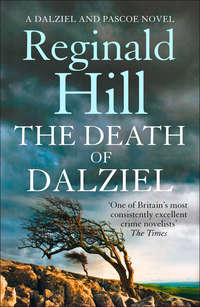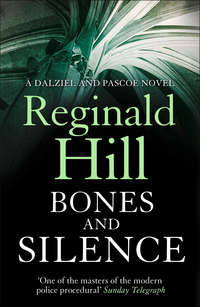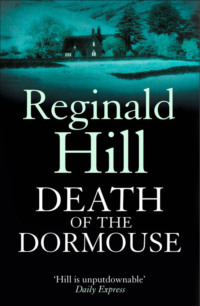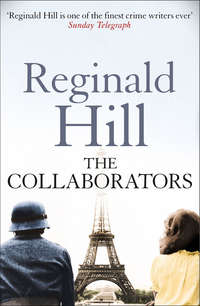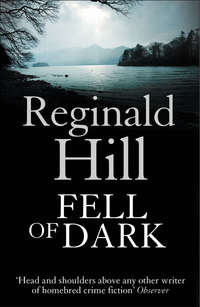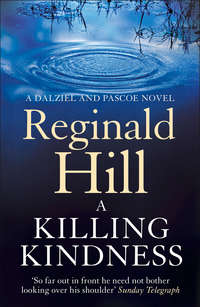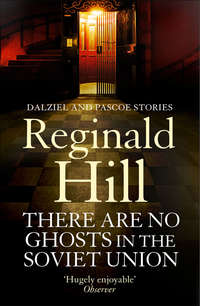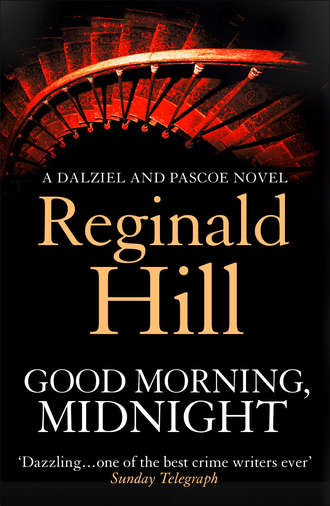
Полная версия
Good Morning, Midnight
He stood and watched as the rotations of the spindle wound the thread into the depths of the machine. Just before it vanished he pinched the end between his thumb and finger, held it, pausing the music momentarily, then let it go.
He switched off the light. Darkness surged back, almost tangible, as if it longed to snuff out the candle. But the tiny flame burnt on, filling the hollows of his face with shadow and turning the peaks to parchment as he went behind the desk and sat down in the ornately carved mahogany elbow chair.
He opened a drawer and from it he took a book, which he set on the desk, a legal envelope and a fountain pen. Out of the envelope he took several sheets of heavy bond paper. He held a single sheet over the candle till it began to burn. He let it fall into a metal wastepaper bin by the chair. He lit a second sheet, did the same, then the others one by one. Tongues of fire showed at the bin’s mouth, licking the darkness out of the study’s gloomy corners before they shrank and died. The record was still playing. He listened and recognized the fourth of the Childhood Scenes. With an effort he summoned up its title. ‘A Pleading Child’.
He shook the bin to make sure all the paper was consumed and stirred up the ashes with an ebony ruler, reducing them to a fine powder, some of which drifted up on the residual heat and hung in the air.
Now he rose again and went to the left-hand wall where alongside one of the bookcases a glass-fronted, metal-framed gun case was bolted on to the oak panelling. It was empty, covered with a soft pall of dust which he was careful not to disturb as he opened the door. He reached in, took hold of the gun-retaining clip, twisted it anticlockwise through ninety degrees, then pulled sharply. A section of panelling came away revealing a recess mirroring the cabinet in size and in function too. Here stood a shotgun, which unlike most other things in that room showed no sign of dusty neglect. It gleamed with a menacing beauty. Alongside it, on a leather-bound diary embossed with the year 1992, rested a pack of cartridges.
He took the gun and cartridges and returned to the desk. The music had reached piece number seven: ‘Dreaming’. He sat down with the weapon across his lap, broke it and loaded it. From his pocket he took a piece of string about a foot long with a loop at either end. He slipped one of the loops over the trigger, and leaned the weapon against the desk.
He checked his watch. Waited another thirty seconds. Picked up the fountain pen. Wrote in bold capitals on the envelope FOR SUE-LYNN. Set the pen down on the desktop. Checked his watch again. Stood up and went back to the gun case.
Up to this point he had done everything with steady purpose. Now he seemed touched by a sense of urgency.
He peeled off the gloves and tossed them into the secret recess, followed by his lighter, the matchbook, the microcassette, the hip flask and the prescription bottle. Next he replaced the panel, twisted the gun clip, shut the cabinet door, and went back to the chair into which he slumped with a finality which suggested he did not purpose rising again. He let the music back into his ears. Piece eleven was finishing. ‘Something Frightening’. Then piece twelve began. ‘Child Falling Asleep’.
He listened to it all the way through, asking himself, where had they gone, those thirty years?
As the music faded, he drew the book on the desktop towards him.
The final piece began. ‘The Poet Speaks’.
He opened the book. He did not need to look for his place. It fell open with an ease that suggested that this was a page frequently visited.
And now the observer saw that other part of himself, that disembodied swirl of feeling, start to drift back into the corporeal chamber from which it had been temporarily expelled. Like Action Man, it had its calmness too, but this was the calm of despair, the acknowledgement that the end was near, a process perfectly captured by the words the eyes stared at but did not need to see.
He scanned it – staggered –
Dropped the Loop
To Past or Period –
Caught helpless at a sense as if
His Mind were going blind –
Feeling Man, the observer saw, was absolute for death, so completely separated from hope and time and sense and feeling and all the threads of experience which tie us lightly to life that he was far ahead of the meticulous preparation of Action Man for that journey from the familiarity of now into the mystery of next …
The music was coming to an end. The observer could hear it but Feeling Man had ears for nothing but the words of the poem as if they were being read aloud by the soft American voice of their creator …
Groped up, to see if God was there –
Groped backward at Himself
… while Action Man still went quietly about his business, removing his left shoe and sock, bringing the gun between his legs with the stock firmly on the floor, slipping the loop of string over his big toe, grasping the barrel with both hands and holding it steady against the edge of the desk, then leaning forward and pressing the soft underpart of his chin hard against the muzzle.
Now the quiet voice in Feeling Man’s mind speaks the final words
Caressed a Trigger absently
and wandered out of Life
while Action Man lowers his left foot, and Observing Man, rather to his surprise, has time to see the ball of shot burn its way up through jaw and palate, squirting blood from mouth and nostrils and punching out the eyes before emerging through the top of his skull in a fountain of bone and brain which spatters floor and desk and open book.
For a millisec reason and sensation and observation are reunited in one consciousness.
Then the empty body slumps to one side, the record dies away, the fine ash from the wastepaper bin slowly settles, the candle gutters.
Pal Maciver exists no longer.
Except in the hearts and minds and lives of those he leaves behind.
2
bedside manner
Sue-Lynn Maciver stretched her naked body languorously against her lover’s hand and laughed.
‘What?’ said Tom Lockridge.
‘I was thinking, first time I felt you inside me, it cost me a hundred quid.’
‘Wait till you get my bill for this.’
He spoke lightly but she knew he didn’t like being reminded he was still her doctor. When Pal had dropped him, his first reaction had been that her husband suspected something. Once reassured, his second reaction had been that this was a good opportunity for her to come off his list too.
‘Don’t be silly,’ she’d said. ‘Why give up the perfect cover for me visiting your surgery, you coming to the house?’
‘It’s just that, if it ever came out, the GMC don’t take kindly to doctors screwing their patients.’
‘Really? How else do they expect you to become stinking rich?’
When he didn’t laugh, she said, ‘Relax, Tom. It’s not going to come out, not from me, anyway. I’ve got even more reason to keep it from Pal than you have from your precious Council. Or your precious wife for that matter.’
She’d meant it. But nonetheless it wasn’t altogether displeasing to feel she had a hold over her lover that went beyond his desire.
He removed his hand from between her legs and pushed back the duvet.
She glanced at her watch and said, ‘What’s the hurry? We’ve got another hour at least.’
‘Just going to the loo,’ he said, rolling out of bed.
‘Why do men always have to pee after sex?’ she called after him.
He paused in the doorway and said, ‘I’ll draw you a diagram when I get back.’
She made a face at the prospect. Sometimes it wasn’t altogether comfortable screwing a man who knew so much about the internal workings of the human body. She reached out to the cigarette packet lying by the phone on the bedside table and lit one. He’d probably give her the antismoking lecture, but it was better than a conducted tour of his innards.
The phone rang.
She picked it up and said, ‘Hi.’
‘Sue-Lynn, it’s Jason.’
She stiffened then forced herself to relax.
‘Jase, shouldn’t you be chasing a little ball around a squash court with my husband?’
‘That’s why I’m ringing. He hasn’t turned up. My mobile’s on the blink and I thought he might have left a message with you.’
She stubbed her cigarette out, swung her legs off the bed, found her panties on the floor and started tugging them on one-handed as she replied, ‘Sorry, Jase. Not a word. But I shouldn’t worry. Probably a customer showed up as he was on his way out. You know Pal. He’d miss his own funeral if he thought there was a deal to be done. How’s Helen? Must be close now. Give her my best. Look, got to go. ’Bye.’
She put down the phone and was crouching on the floor searching for her bra when she heard the toilet flush. A moment later, Lockridge came through the door. He was smiling and there was evidence he was having serious thoughts about how to spend the next hour. The smile faded as he saw her rise on the far side of the bed with her bra in her hand.
‘Pal’s loose,’ she said before he could speak. ‘Get dressed.’
‘Shit. You don’t think he’s on to us? Jesus wept!’
He’d started dragging on his trousers with more haste than care and done something she didn’t care to think about with the zip.
‘Shouldn’t think so, but better safe than sorry … oh hell. Did you hear that?’
‘What?’
‘I don’t know. A noise. Downstairs. No … on the stairs.’
They both froze, mouths agape, eyes staring, she with her bra round her neck, he with his hand on his fly zipper, like a tableau vivant of Guilt Surprised, and were both in a state to take the flash of light that came through the open door as the harbinger of one of heaven’s avenging angels.
3
Signora Borgia ’s guest list
The mist was definitely getting thicker. Much more and they’d be calling it fog, which was bad news. There were enough idiots out there who couldn’t drive properly in broad daylight without making things even more problematic for them.
Ignoring the obvious impatience of the cars behind her, Kay Kafka drove her Mercedes E-Class down the quiet suburban roads at five mph under the permitted speed limit and signalled a good hundred yards before she turned into the driveway of Linden Bank.
With the mist and encroaching darkness toning down the unfortunate shade of lavender the Dunns had chosen for their outside woodwork, she was able to re-experience her feelings on first seeing the house. Helen had rung full of excitement to tell her that she and Jason had found a place they both liked but she wanted Kay’s approval before committing. Kay had gone along prepared to lie, and had instead been delighted. She’d liked the clean modern lines, the harmonious proportions, the use of rosy brick under a shallow-pitched roof of olive tiles. The prepared lies had come in useful later, however, once the newlyweds had moved in.
At the door Kay only had to ring once before it was flung open by a young woman hugely pregnant.
‘You’re late,’ she said accusingly.
‘You too by the look of you.’
The young woman grimaced and said, ‘Still a couple of days to go – Kay, it’s lovely to see you.’
The two women embraced, not without difficulty.
‘Jesus, Helen, you sure it’s only twins you’ve got in there?’
‘I know – it’s terrible – I may have to let out my smocks.’
They went into the house. Outside the evening temperature was dropping fast. In here as usual the central heating was set a couple of degrees above Kay’s comfort level. In anticipation she was wearing only a sleeveless silk blouse beneath her chic sheepskin jacket.
As Helen hung it up she brushed her hand over the fleecy collar and said, ‘Hey, have you been on a building site? This is a bit dusty.’
‘Is it? You know these old houses. I wish Tony had bought somewhere modern like this,’ said Kay removing the silk square with which she’d protected her short black hair from the mist and shaking it gently. ‘He sends his love.’
‘Give him mine. I really love that blouse,’ said Helen enviously. ‘Wish I dared let people see the tops of my arms.’
In fact pregnancy became her. Big she was, but with the roseate carnality of a Renoir bather. In the glow of that aura many other women would have been reduced to attendant shadows, but Kay Kafka, pale faced and pencil slim, was not diminished.
They went into the lounge. The first time Kay had come into this room and found it full of light from the huge picture window overlooking the long rear lawn, she had known exactly how she would furnish and decorate it. Now, even after many visits, she had to make an effort not to react to the heavy furnishings, the fitted pink carpet, the gilt-framed Canaletto reproductions and the Regency striped curtains which, closed, at least concealed the Yorkstone patio running down to a solar-powered fountain in red-veined marble with which the Dunns had replaced half of the lawn. The only thing that won her approval was the Steinway upright occupying one corner, which, if Jason had had his way, would probably have been replaced by an electronic keyboard in dazzling silver. Strange, she thought, how people could be so beautiful without having any inner sense of beauty.
Tony, when she had told him about this, had asked, ‘So if she bought the right kind of house, how come she put the wrong sort of stuff in it with you looking over her shoulder?’
‘Because I wasn’t looking over her shoulder, not even when she asked me to,’ said Kay. ‘It’s not my place.’
‘Come on. The kid worships you and you’re the nearest thing to a mother she ever had.’
‘But I’m not her mother and I never want to give her occasion to remind me. In fact, looking back, I suspect she chose the house because she knew in advance I’d like the look of it, which I did. Inside’s different. They’re the ones who’ve got to live in it.’
‘You’re all heart, baby,’ said Tony, smiling. He was a man of many contradictions and this capacity to be cynical and affectionate at the same time was one of them.
Now she seated herself gingerly at one end of a long sofa. This was great furniture for lounging in. Helen in her pre-pregnancy days would usually curl up in one of the huge chairs with her legs tucked up beneath her and Kay had had to admit that the setting suited her marvellously well. Herself, even in Helen’s company, she liked to stay in control, and felt taken over by the soft cushions and yielding upholstery. Tony had called it a great shagging sofa, and thereafter whenever she sat on it she got a mental flash of Jason and Helen intimately intertwined in its depths.
Now Helen was long past the curling up stage and presumably the intimate intertwining stage too. She’d brought one of the broad high elbow chairs from the dining room to sit upon, though even this was becoming a tight fit.
‘Hope you don’t mind – got pizzas coming – cooking’s getting hard without doing myself or the Aga serious damage – sorry.’
There’d been a time when Kay had tried to amend Helen’s rather breathlessly unpunctuated way of speaking but she’d given up when she saw she was merely creating tension. The same with the girl’s taste in interior decoration. This was how she was, and you didn’t look a gift horse in the mouth especially when God was the giver.
‘Pizza’s fine,’ she said with a smile. ‘Though I hope Jase is making sure you get a slightly more varied diet.’
‘Don’t worry – I’m sticking to the menu I got from the clinic – more or less – tonight’s a treat – triple anchovies – damn! Just when I’d got comfortable.’
The phone in the entrance hall was ringing.
‘I’ll get it,’ said Kay.
She rose elegantly, not an easy feat from the absorbent upholstery, and went into the hall.
‘Hello,’ she said.
‘Kay, is that you? It’s Jason. Look, Pal hasn’t turned up for squash and I wondered if maybe he’d tried to ring me at home. Could you ask Helen?’
‘Sure.’
She called, ‘It’s Jase. Pal’s stood him up. He wants to know if he’s left a message here.’
‘No, nothing – tell Jase to get himself something at the Club like he usually does – don’t want him spoiling our evening just because Pal’s spoilt his.’
‘Jase, did you get that?’
‘Yes. Who needs phones when you’ve got a wife who could yodel for Switzerland? OK, tell her I’ll get myself a pasty, then go up on the balcony and see if I can find a couple of sweaty girls to watch. How are you keeping, Kay?’
‘Mustn’t complain.’
‘Why not? Everyone else does. Probably catch you before you leave. Bye.’
Kay put down the receiver and stood looking at her reflection in the gilt mirror on the wall behind the phone table. Her face wore the contemplative almost frowning expression which Tony had once caught in a snap which he labelled La Signora Borgia checks her guest list. She relaxed her features into their normal edge-of-a-smile configuration and went back into the lounge.
4
an open door
‘There we go,’ said PC Jack ‘Joker’ Jennison, placing the two newspaper-wrapped bundles on the dashboard. ‘One haddock, one cod.’
‘Which is which?’
‘Mail’s haddock, Guardian’s cod.’
‘That figures. What do I owe you?’
‘Don’t be daft. Chinese chippie two doors up from the National Party offices, they’d pay good money to have us park outside till closing time.’
‘Then they’ll be getting a refund,’ said PC Alan Maycock. ‘We’re out of here.’
He gunned the engine and set the car accelerating forward.
‘What’s your hurry?’ asked Jennison.
‘Just got a tip from CAD that Bonkers is on the prowl. Don’t think he’d be too chuffed to find us troughing outside a chippie, so let’s find somewhere nice and quiet.’
Bonkers was Sergeant Bonnick, a new broom at Mid-Yorkshire HQ who was hell bent on clearing out its dustiest corners. Also he was big on physical fitness and had already been mildly sarcastic about the embonpoint of the two constables, saying that watching them getting into their car was like seeing a pair of 42s trying to squeeze into a 36 cup.
‘Not too far, eh? I hate cold chips,’ said Jennison, pressing the warm packets to his cheeks.
‘Don’t fret. Nearly there.’
They’d turned off the main road with its parade of shops and were speeding into the area of the city known as Greenhill.
Once a hamlet without the city wall, Greenhill had been absorbed into the urban mass during the great industrial expansion of the nineteenth century. The old squires who bred their beasts, raised their crops, and hunted their prey across this land were replaced by the new squires of coal and steel and commerce who wanted houses to live in that had land enough to give the impression of countryside but without any of the attendant inconveniences of remoteness, agricultural smells or peasant society. So the hamlet of Greenhill became the suburb of Greenhill, in which farms and cotts and muddy lanes were replaced by urban mansions and tarmacked roads.
From the naughty nineties to the fighting forties, many of the great and the good of Mid-Yorkshire paraded their pomp in Greenhill. But after the war, the rot set in. Old ways and old fortunes faded, and though for a while the makers of new fortunes still turned their thoughts to what had once been the arriviste’s dream, a Greenhill mansion, there rapidly developed an awareness of their inconvenience and a sense that they were at best démodé, at worst crassly kitsch, and by the seventies Greenhill was in steep decline. Many of the mansions were converted into flats, or small commercial hotels, or corporate offices, or simply knocked down to make room for speculative development.
Some areas hung on longer than others, or at least by sheer weight of presence managed to preserve the illusion that little had changed from the glory days. Chief among these was The Avenue, which, if it ever had a praenomen, had long ago shed it as superfluous to general recognition. Here on nights like the present one, with mist seeping in from the already shrouded countryside to blur the big houses behind their screening arbours into vague shapes, still and awe-inspiring as sleeping pachyderms, it was possible to drive slowly down the broad street between the ranks of leafy plane trees and imagine that the great days of Empire were with us yet.
In fact, driving slowly down the Avenue was still a popular pursuit among a certain section of Mid-Yorkshire society, but they weren’t thinking of Empire, except perhaps metaphorically. The shade against the elements provided by the trees, the privacy afforded by many of the dark and winding driveways, plus the thinness on the ground of complaining residents, made this a favourite parade ground for prostitutes and kerb crawlers. In the misty aureoles of the elegantly curved Greenhill lampposts, the Avenue might look deserted. But set your car crawling sedately along the kerbside and, like dryads materializing from their trees at the summons of the great god Pan, the ladies of the night would appear.
Except if the car had POLICE written all over it, when the effect was quite other.
Jennison hadn’t been able to last out and was already unfolding his parcel, releasing the pungent smell of hot battered fish and vinegary chips.
‘Can’t you bloody wait till I get parked?’
‘No, me belly thinks me throat’s cut. This’ll do. Pull over here.’
‘Don’t be daft. We’d have the girls throwing bricks at us for frightening off the punters. I know just the spot. Bonkers’ll never find us here.’
He swung the wheel over and ran the car under the plane trees into a gravelled driveway between two stone pillars. Stumps of concrete at their tops suggested that they had once been crowned with some ornamental or heraldic device but this had long since vanished, probably at the same time as the ornate metal gate. Its massy hinges were still visible on the right-hand pillar, however, while on the left, graven deep enough in the stonework to be still readable though heavily lichened, was the name MASCOW HOUSE.
Leaning over the high ivied garden wall was an estate agent’s board reading FOR SALE WITH VACANT POSSESSION.
Maycock drove up the length of the drive till he could see the house. Its complete darkness and shuttered windows confirmed the promise of the sign that there was no one here to disturb or be disturbed by.
‘That’s funny,’ he said as he brought the car to a halt.
‘What?’
‘Isn’t that door open?’
‘Which door?’
‘The house door, what do you fucking think?’
The two men strained their eyes through the swirling mist.
‘It is, tha knows,’ said Maycock. ‘It’s definitely open.’
Jennison leaned across, dropped the warm newspaper packet on to his colleague’s lap and switched off the headlights.
‘Can’t see it myself,’ he said. ‘Now shut up and eat your haddock afore it gets cold.’
They munched in silence for a while. Then the radio crackled out their call sign and a voice they recognized as Bonnick’s said, ‘Report your position.’
‘Shit,’ said Maycock.
‘No sweat,’ said Jennison.
He switched on his transmitter and said, ‘We’re in the Avenue, Sarge. Checking out an unsecured property.’
‘The Avenue? Which Avenue?’ demanded Bonnick, sounding irritated. ‘Use proper procedure, full details when reporting location.’
Jennison grinned at his partner and replied mildly, ‘Just the Avenue, Sarge. In Greenhill. Thought everyone knew that. The property’s called Moscow House. It’s on the left-hand side as you’re heading east, about one hundred and five metres from the junction with Balmoral Terrace. There’s a name on the gate pillar. Moscow House. That’s M, O, S, C, O, W. Moscow. H, O, U, S, E. House. Bit misty out here but if you get lost, there’s one or two helpful young ladies around who’ll be glad to show you the way. Over.’


